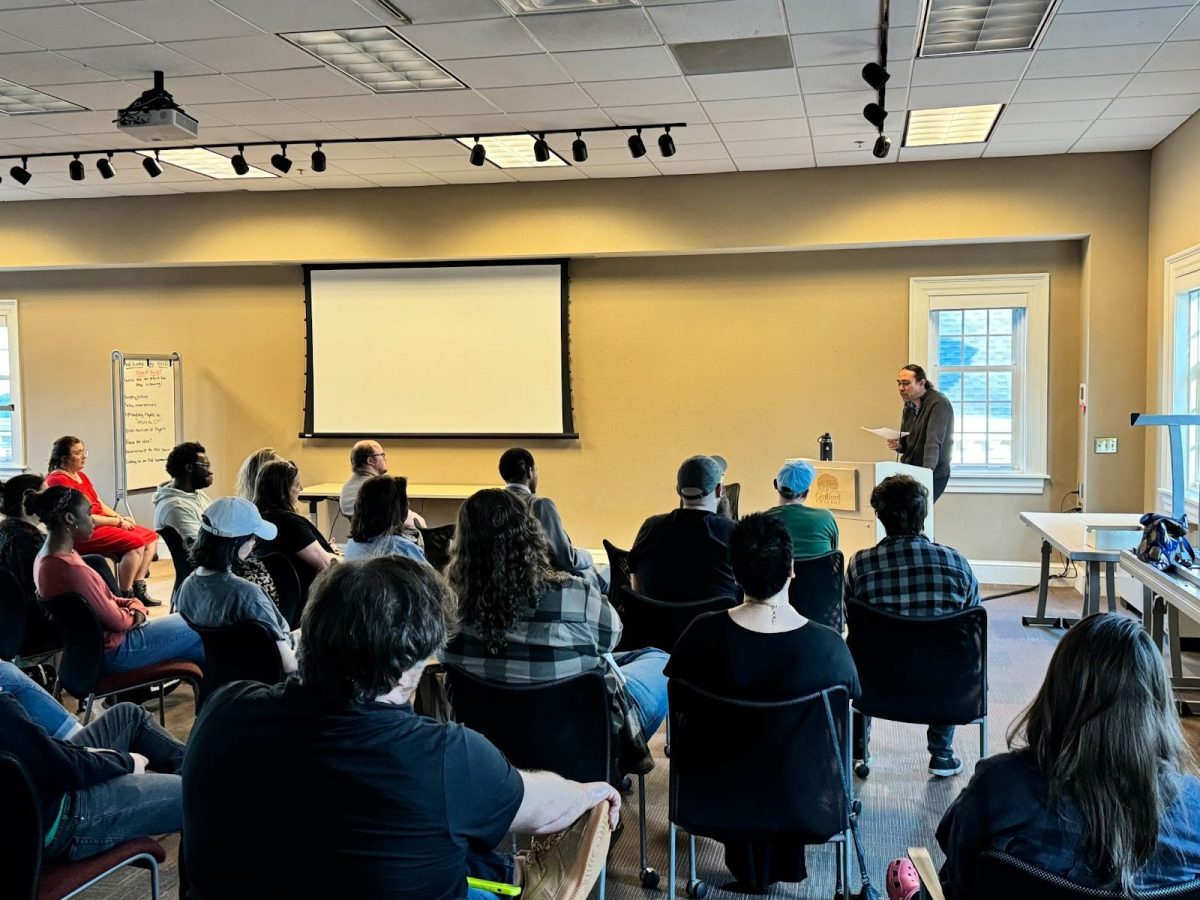A growing concern has been looming over students, faculty and staff this spring semester with the College’s financial deficit of at least $2 million.
Students made their concerns clear during the board of trustees town hall meeting on Feb. 26, many defending the virtues of the Bonner Program in fear that the program may be cut.
The trustees pointed out at the meeting, however, that they had not yet made any decisions about what will be done to balance the budget, and would not do so until later meetings.
President Jane Fernandes dissuaded anyone from believing that specific programs had been named to be cut.
“Don’t make assumptions,” said Fernandes.
Fernandes explained that decisions to remove programs would only come after many meetings and checking with student and staff representatives, the board of trustees and the president’s cabinet.
In meetings with faculty and staff on March 4, Fernandes described the problems surrounding the budget and outlined the process by which the plan to resolve the deficit would unfold.
“In the beginning of December, we wrote that we should have to reduce expenses by $2 million, and a few months later (the amount) is even more than that,” said Fernandes. “We have to stop the deficit from getting any larger, (and) reports show it will be larger in the next few years.”
No specific changes have yet been made or confirmed. Only the process by which the decisions will be made has been decided.
“By the end of March, I have a group of people (including) my president’s cabinet members, (and) three faculty: Sherry Giles, Dave Dobson and Darryl Samsell, and Deborah Shaw from the Friends Center,” Fernandes said. “By March, we will have a proposal for reaching a balanced budget by the end of 2016-17.”
In April, Fernandes and this group will attend a variety of meetings, some of which will include students and staff. There, they will propose the key elements of their plan for reaching a balanced budget and solicit feedback from those present.
“Possibly, we will change anything based on the feedback,” said Fernandes. “Then, in May, I will bring the plan to the board of trustees for review and approval.”
This deficit has grown to its current size over the past several years due to several trends. Since 2010, the college has been spending more every year than it had available.
In addition, enrollment figures have dropped for CCE and traditional students. This has led to significantly less money coming into the college than before, while tuition discounts have grown in size. This has created a “crisis proportion,” as Fernandes called it at the staff meeting.
“There are two ways to fix our income, (increase the amount of money we make or) decrease our expenses,” said Professor of Geology and Earth Sciences Dave Dobson. “And we have a lot more control over the dollars we spend as opposed to the dollars we make.
“It’s faster for us (to address the deficit if we) look at it from the spending side.”
Overall, Fernandes says Guilford must keep in mind that any changes to balance the budget will be in the best interest of Guilford College.
“I think that students should be aware that the process of balancing the budget is going to be making Guilford College a stronger college,” said Fernandes. “So that even though the idea of balancing the budget is painful and scary for some people, when we reach it, Guilford will be in a position to offer better education to students.
“We’re doing this for the good of Guilford College, and making certain that Guilford will be here for hundreds of years to come.”






